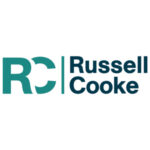Continue reading "Business assets: What the future holds"
Business assets: What the future holds


Continue reading "Business assets: What the future holds"
A company was incorporated by the husband and a friend in 1978 as equal shareholders. The husband and wife started living together in 1986, and married in 1989. At this point, the husband acquired 99% of the shares and the wife 1%. They separated in 2015.
On a wife’s application for a financial remedy order, the judge found that the capital assets were £182m in properties and pension funds, and 100% of the shares in a private company, which he valued at £221m before tax and costs of sale. He found that 80% of the company’s value was marital property, by applying a straight-line ap...

Continue reading "Financial provision: Sharing the risk"

Continue reading "Business assets: Open or shut?"
When the parties met in July 2000, they had both been previously married. In the husband’s case, a difficult divorce caused him to set his face against remarriage. He had three sons who spent significant periods of time with their father in a substantial property near Reading (Property G) which had a value of £3.35m. He (together with his brother) had a successful business in international travel and tourism, owning 51% of the shares in the company valued at £30m. The wife, who had no children, had two rented properties with a combined equity of £245,615. By the time she moved into Prope...

Continue reading "Family Businesses: The golden goose"